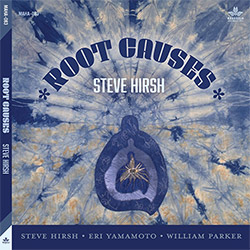
An inspired session of spontaneously lyrical collective interplay from drummer Steve Hirsh with pianist Eri Yamamoto and bassist William Parker (also performing on gimbri), recorded in a single afternoon at Brooklyn's Park West Studios, presenting four fully improvised pieces that balance nuance, empathy, and depth with free yet cohesive expression.
In Stock
Quantity in Basket: None
Log In to use our Wish List
Shipping Weight: 3.00 units
Sample The Album:
Steve Hirsh-drumset
Eri Yamamoto-piano
William Parker-bass, gimbri
Click an artist name above to see in-stock items for that artist.
UPC: 195269346300
Label: Mahakala Music
Catalog ID: MAHA-083
Squidco Product Code: 36059
Format: CD
Condition: New
Released: 2025
Country: USA
Packaging: Digipack
Recorded at Park West Studios, in Brooklyn, New York, on October 28th, 2023, by Jim Clouse.
"Drummer Steve Hirsh issues the first recording under his own name with Root Causes, which finds him working in a trio with two of the world's greatest free improvisers: pianist Eri Yamamoto and bassist William Parker. Recorded in a single afternoon session in October 2023, each of its four tracks comprises a complete musical arc, full of nuance and carefully considered development-yet each is wholly improvised, the three master musicians working collectively and without a net to build something beautiful and cohesive in the moment.
While Hirsh's name is the one atop the album, the Minnesota-based drummer keenly stresses that "This music is not about me. I'm just one piece of it. I didn't even go in wanting the music to be anything in particular. I trusted the process. The process works 100 percent of the time when you've got the right people in the room, and Eri and William both are just extraordinary at what they do."
Hirsh, Yamamoto and Parker first came together as three-fourths of the Sparks Quartet, which also features saxophonist (and Mahakala Records founder) Chad Fowler. From the first note they played together, Hirsh recalled, it was magical and remained so in every future endeavor. The drummer soon discovered that in the interludes where Fowler would lay out, the remaining trio made its own kind of magic that he wanted to explore.
Root Causes is the document of that exploration. Suspenseful and ever in motion, the music is also remarkably lyrical and accessible-while never compromising itself on any level or sacrificing its own spontaneity.
Parker brought in his gimbri, a three-string Moroccan lute, to supplement his upright bass. (The former instrument can be heard in the first segment of "Gamuts.") Yet the empathy and synchronicity between the three musicians is so tight that it almost doesn't matter who's playing what. "When you're playing with musicians of this caliber, they're listening so closely-they're hearing every nuance," Hirsh says. "And so as soon as there's a suggestion that the music might go someplace, boom, everybody's just there. And there's no ego involved, no 'but I want to go here, no, I want to go there.' Everybody hears the suggestion and they go right to it."
A native New Yorker, Hirsh's first experience in music was as a 10-year-old who wanted to play guitar like the Beatles. (It didn't take; his first lessons were on a classical guitar, with steel strings that "really chewed up my fingers.") Likewise, braces cut short his saxophone ambitions in junior high school band class. Instead, he found the snare drum, and was soon banging around to his favorite Motown records. Later, in his teenage and young adult years, Hirsh became a rock & roll drummer, but he had started listening to jazz after taking home Coltrane's Blue Trane from the library when in high school, and over time he climbed ever higher into all the branches of that tree.
He hadn't developed the chops for the music, though, and when the predictable patterns of rock drumming became a bore, Hirsh walked away from music to build a life in northern Minnesota as a lawyer and political activist, as well as a husband and father. It was only after he bought a drum kit for his son, who proved disinterested, that Hirsh rediscovered his love of making music. This time, he was determined to learn to play jazz.
This, in turn, led him to develop a fondness for freeform improvisation, and Hirsh was soon gigging with other creative musicians in the Twin Cities area. When the COVID pandemic hit pause on those gigs, Hirsh made the Internet acquaintance of Chad Fowler, in whom he found a kinship and a willing partner in remote collaborations. Once the lockdowns lifted, Fowler helped Hirsh to connect with other such like-minded musicians as Matthew Shipp, Ivo Perelman, Daniel Carter, Parker, and Yamamoto, with all of whom Hirsh has worked and recorded fruitfully.
"Music is so powerful and meaningful," says Hirsh. "I've had the good fortune to experience that power regularly. For most of time, the role of music for humanity was as an entry into an exalted state of existence. We've lost so much of that, but we have remnants of it in the culture, and that's what I'm looking for every time I go to play." Root Causes offers a channel into that state of exaltation."-Mahakala
"Although Steve Hirsh's name appears on the masthead of Root Causes, you might not immediately recognize it as a drummer-led recording. Unlike the unmistakable leadership of Art Blakey, Elvin Jones, and Tony Williams, Hirsh leads with subtlety, functioning more as a selfless, responsive collaborator than a dominant force. The album features a classic piano trio format, with pianist Eri Yamamoto and bassist William Parker rounding out the ensemble. This trio forms three-quarters of the Sparks Quartet, led by saxophonist Chad Fowler. Together, they've toured and released two albums on the Mahakala Music label-Sparks (2022) and Live at the Vision Festival XXVI (2023). Just before embarking on their 2023 tour, the trio recorded this set.The album opens with "We Went Finding," an apt title for a piece that feels like a process of musical discovery. Yamamoto's probing piano, Parker's nimble pizzicato lines, and Hirsh's brushwork create a spacious, exploratory atmosphere. The trio gradually moves into a polite, improvised conversation-trading motifs, trying out ideas. Hirsh's drumming often resembles a musical haiku: concise, intentional, and evocative. The piece closes on a gentle, blues-tinged note, signaling a collective sense of arrival.Throughout the album, the trio embraces the freedom of improvisation without tipping into chaos. On "Riptide," Parker trades his upright bass for the gimbri-a traditional Moroccan three-stringed, skin-covered instrument-laying down a hypnotic pulse. Yamamoto responds with cascading two-handed runs while Hirsh cycles through intricate, odd-meter rhythms, acting as the perfect colorist for the setting. Whether driving the energy on "Gamuts" or engaging in an intimate duo with Yamamoto on the title track, Hirsh consistently provides thoughtful, sensitive accompaniment that elevates the ensemble's cohesion and depth. Root Causes is a testament to the power of deep listening and shared intuition-proof that sometimes the most compelling leadership comes from knowing exactly when to step back."-Mark Corroto, All About Jazz
Get additional information at All About Jazz
Artist Biographies
• Show Bio for Steve Hirsh Steve Hirsh: "About Me I come from a non-musical family. But every week growing up, I'd get my allowance and go to the local record store to pick up the latest hit. At 10 years old, I started guitar lessons at a neighborhood community center. I wanted to learn Beatles tunes but instead found myself learning classical guitar. I wasn't into it and stopped after a year. Then in junior high, I had a band/orchestra class. I started off playing alto sax. But in the summer after my first year, I got braces on my teeth and my orthodontist told my mother that playing a reed instrument would be bad for my overbite. So in my second year, I started on drums because I figured it would be the easiest instrument to catch up on. The bug bit me then, and I would spend hours playing along to records on my snare drum. I went to a specialized public high school in New York City that focused on math and science. They had no music classes, except for a single music appreciation class that dealt entirely with European classical music. There was one Black girl in my class (!). One day she asked the teacher why he didn't teach anything about jazz and Miles Davis and John Coltrane. That was the first time I heard those names. The teacher said something dismissive and moved on. Somewhere around there I got my first drum set and was trying to figure out how to play it. One day in the library, I was thumbing through the record collection and came across Kind of Blue and Blue Trane. I remembered hearing Miles' and Trane's names and took the records home. I was astounded by what I heard, particularly drummer Philly Joe Jones on Blue Trane. I had no idea what or how he was playing and could hardly believe that there was only 1 drummer. Over the next 10 or so years, I dove deeper and deeper into the music. I worked forwards and backwards - Bitches Brew-era Miles, and late John Coltrane, and Max and Bird and then everyone in between, and then back to Basie and Ellington and Papa Jo Jones. I was playing in rock and blues bands and saw jazz drumming as beyond my abilities. After my 2nd year of college, I told my parents that I wanted to transfer to Berklee College of Music. But I had no one to help me navigate that change and I was unable to do it myself. Eventually, I just quit college, moved to California, and started playing in bands. I wound up hanging out and then working at Keystone Korner. I saw everyone there - Dexter Gordon, Max Roach, Art Blakey, Rhasaan Roland Kirk, Stan Getz, Mary Lou Williamson, the house band with George Cables and Eddie Marshal, Billy Higgins, Woody Shaw, Elvin Jones. And I started trying to play the music. But eventually, I quit playing for a variety of reasons, including the inability to believe I could really ever play it well and authentically, and the need to get away from the drug scene (this was San Francisco in the mid-'70s). But I never stopped listening, and eventually went back to playing in rock and blues bands. I quit playing again in the early 80s but then picked it back up 20 years later when I bought my son a drum set. I bought it for him, then took it over (I sat down behind it to check it out and didn't come out for a week.). I've been playing steadily since then. I played a lot of straight-ahead jazz gigs, a lot of dinner jazz. But I always had a taste for the more outside sounds, and for the last few years, that's exclusively what I've been playing. I have led several improvising ensembles in the last few years, and have played most of the Twin Cities venues that are open to this music, including Khyber Pass Cafe, The Icehouse, Jazz Central Studios, The Cedar Cultural Center, and Grand Oak Opry. I started a regular series at the East Side Freedom Library in St. Paul, featuring my groups and other improvising ensembles. I also hosted a weekly open session there, where anyone could come and gain experience improvising with experienced players. I've played with (among others) William Parker, Joel Futterman, Eri Yamamoto, Matthew Shipp, Ivo Perelman, Luke Stewart, Douglas Ewart, Babatunde Lea, George Cartwright, Donald Washington, Chad Fowler, Zoh Amba, Brad Holden, Dick Studer, Josh Granowski, Matt Trice, Kavyesh Kaviraj, and DeVon Russell Grey. In the past year, with the isolation of the pandemic and the near-total loss of performance opportunities, I have become involved in several remote collaborations, with both old and new friends. There are a few of those on the Recordings page, if you're curious. My latest releases are Ebb & Flow, with Joel Futterman and Chad Fowler, Notice That There, with Geirge Cartwright, Chad Fowler, Christopher Parker and Kelley Hurt, Warp & Weft, a collaboration with the extraordinary pianist Joel Futterman, Two Five None, a duo with Chad Fowler, and You Know When It's Time by Original Mind, all on Mahakala Music https://mahakalamusic.bandcamp.com/. There's more stuff coming - follow me on Bandcamp, follow Mahakala Music, and send me a note asking to be added to my email list. I endorse Canopus drums and Bosphorus cymbals. Beautiful instruments I'm lucky to play. Born and raised in New York City, I now make my home in the woods of Northern Minnesota." ^ Hide Bio for Steve Hirsh • Show Bio for Eri Yamamoto Eri Yamamoto Pianist/ Composer Since moving to the United States in 1995, Eri Yamamoto has established herself as one of jazz's most original and compelling pianists and composers. Jazz legend Herbie Hancock has said, "My hat's off to her... already she's found her own voice." The Eri Yamamoto Trio has developed a unique sound and repertoire, and has built a strong following in New York and abroad. They have recently toured the U. S., Canada, Europe, and Japan, with appearances at major festivals in Jazz en Raffale, Canada; Cheltenham, England; Terrassa, Spain; Bray/Derry, Ireland; Time Zones in Bari, Italy; and Shiga, Japan. Eri has also been collaborating with such creative and celebrated musicians as William Parker, Daniel Carter, Hamid Drake, Federico Ughi, and Yves Léveillé. In 2009, Eri composed trio music to accompany the 1932 silent film by the master director, Yasujiro Ozu, I Was Born But... This music was premiered in a festival in Munich, Germany, and five of the songs appear on her CD, In Each Day, Something Good. In 2012 release, her latest trio CD, The Next Page on AUM Fidelity Label is her eighth CD as a leader. Her ten new compositions evoke a wide range of images and moods, inspired by moments of grace in her daily life, and her encounters of natural beauty at home and throughout her travels. Eri has also developed a personal voice as a solo pianist, and has moved audiences with her renditions of her own compositions and her spontaneous improvisations. In 2008, she gave a nine-concert solo tour of Italy to popular and critical acclaim. She has also given solo concerts in Japan and the United States. Since 2009, Eri has had a special collaboration with French-Canadian pianist Yves Léveillé, performing at several concerts and clubs throughout Canada. In 2010, they released a CD, Pianos, that features 10 of their original compositions in duo and solo settings. They added multi-reed virtuoso Paul McCandless to their ensemble, and recently toured Canada, where they deeply moved audiences with their lyrical and compelling music. Eri was born in Osaka, Japan, and began playing classical piano at age three. She started composing when only eight years old, and studied voice, viola, and composition through her high school and college years. In 1995, she visited New York for the first time, and by chance heard Tommy Flanagan performing. She was so inspired by her first experience of a jazz piano trio that she decided on the spot to move to New York and dedicate herself to learning jazz. Later that year, Eri entered the New School University's prestigious jazz program, where she studied with Reggie Workman, Junior Mance, and LeeAnn Ledgerwood. In 1999, while still in school, she started playing regularly at the Avenue B Social Club, a popular spot among jazz musicians in the East Village. There she developed a musical friendship with fellow pianist Matthew Shipp. Since 2000, Eri's trio has been appearing regularly at Arthur's Tavern, a historic jazz club in New York's Greenwich Village. In addition to her European performances, she has performed at the Hartford International Jazz Festival, An Die Musik in Baltimore, and Lincoln Center Summer Festival in New York City. Eri has appeared on two William Parker recordings, Luc' s Lantern and Corn Meal Dance, and has performed in Italy, Holland, Norway, Tunisia and Portugal with his trio and sextet. She has also worked with such musical luminaries as Ron McClure, Andy McKee, Lewis Barns, Rob Brown, Leena Conquest, Butch Morris, Arthur Kell, Kevin Tkacs, and Whit Dickey. Finally, Eri is a gifted educator. She received her master of music in education and composition from Shiga University, Japan. She has taught private lessons and workshops to jazz musicians of all instruments from the U. S., Japan, Europe, and North Africa. www.eriyamamoto.com eri@eriyamamoto.com Eri Yamamoto bio, p. 2 ^ Hide Bio for Eri Yamamoto • Show Bio for William Parker "William Parker is a bassist, improviser, composer, writer, and educator from New York City, heralded by The Village Voice as, "the most consistently brilliant free jazz bassist of all time." In addition to recording over 150 albums, he has published six books and taught and mentored hundreds of young musicians and artists. Parker's current bands include the Little Huey Creative Music Orchestra, In Order to Survive, Raining on the Moon, Stan's Hat Flapping in the Wind, and the Cosmic Mountain Quartet with Hamid Drake, Kidd Jordan, and Cooper-Moore. Throughout his career he has performed with Cecil Taylor, Don Cherry, Milford Graves, and David S. Ware, among others." ^ Hide Bio for William Parker
5/12/2025
Have a better biography or biography source? Please Contact Us so that we can update this biography.
5/12/2025
Have a better biography or biography source? Please Contact Us so that we can update this biography.
5/12/2025
Have a better biography or biography source? Please Contact Us so that we can update this biography.
Track Listing:
1. We Went Finding 12:45
2. Riptide 16:41
3. Gamuts 09:14
4. Root Causes 14:19
Improvised Music
Jazz
Free Improvisation
Collective & Free Improvsation
Melodic and Lyrical Jazz
NY Downtown & Metropolitan Jazz/Improv
Trio Recordings
Parker, William
New in Improvised Music
Recent Releases and Best Sellers
Search for other titles on the label:
Mahakala Music.




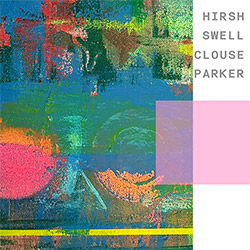

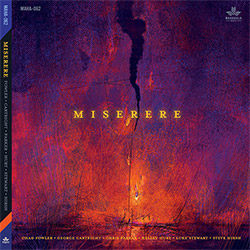

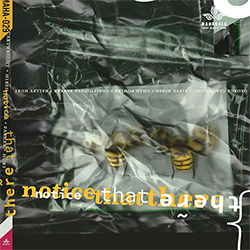
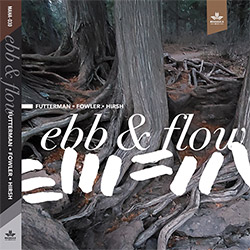
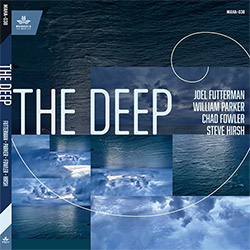
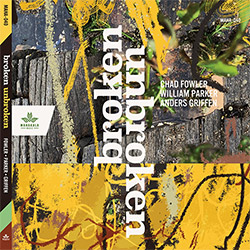
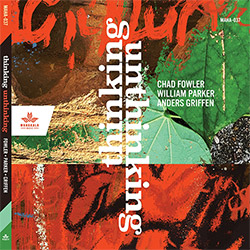


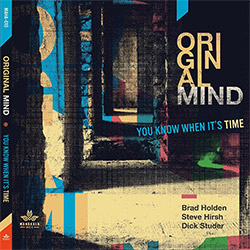
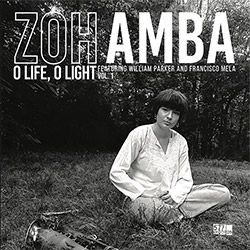

![+Dog+: The Family Music Book Vol. 5 [2 CDs]](https://www.teuthida.com/productImages/misc4/35897.jpg)


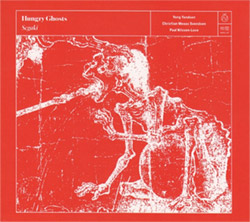
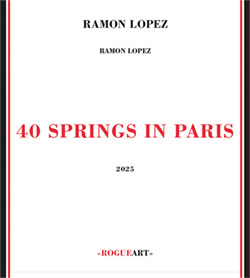
![Mazurek, Rob: Flitting Splits Reverb Adage [BOOK]](https://www.teuthida.com/productImages/misc4/35984.jpg)
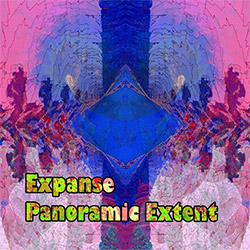

![Sinton, Josh: Couloir & Book Of Practitioners Vol. 2 Book "W" [2 CDs]](https://www.teuthida.com/productImages/misc4/36242.jpg)
![Kuvveti, Deli : Kuslar Soyledi [CASSETTE w/ DOWNLOAD]](https://www.teuthida.com/productImages/misc4/36107.jpg)
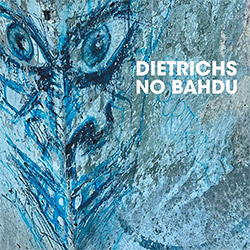
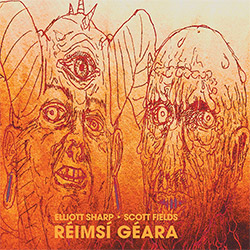

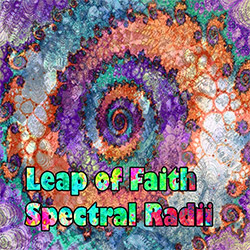
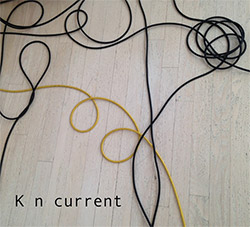

![Palestine, Charlemagne / Seppe Gebruers: Beyondddddd The Notessssss [VINYL]](https://www.teuthida.com/productImages/misc4/36206.jpg)
![Palestine, Charlemagne / Seppe Gebruers: Beyondddddd The Notessssss [NEON GREEN VINYL]](https://www.teuthida.com/productImages/misc4/36207.jpg)
![Eskelin, Ellery Trio New York: About (or On), First Visit [2 CDs]](https://www.teuthida.com/productImages/misc4/36056.jpg)
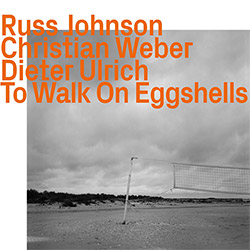

![Nakayama, Tetsuya: Edo Wan [CASSETTE w/ DOWNLOAD]](https://www.teuthida.com/productImages/misc4/36105.jpg)
![Rolando, Tommaso / Andy Moor : Biscotti [CASSETTE w/ DOWNLOADS]](https://www.teuthida.com/productImages/misc4/36106.jpg)
![Lehman, Steve Trio + Mark Turner: The Music of Anthony Braxton [VINYL]](https://www.teuthida.com/productImages/misc4/35641.jpg)

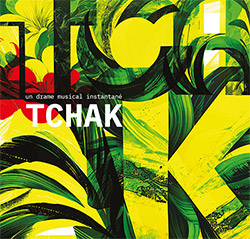
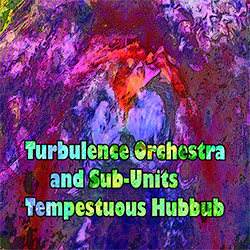
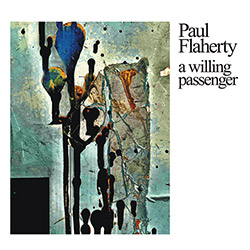
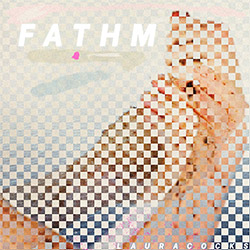
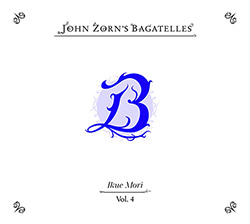
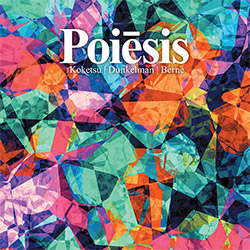



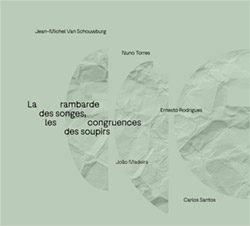


![Segel, Jonathan / Chaos Butterfly: Hall of Mirrors [2 CDs]](https://www.teuthida.com/productImages/misc4/36026.jpg)



![Taylor, Cecil Quintet (w/ John Coltrane / Kenny Dorham / Chuck Israels / Louis Hayes): Stereo Drive + 2 Bonus Tracks (limited Edition) [VINYL]](https://www.teuthida.com/productImages/misc4/35811.jpg)


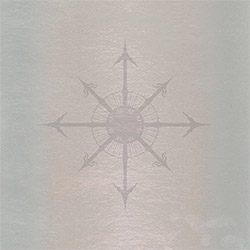
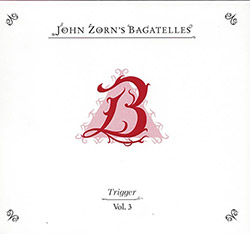
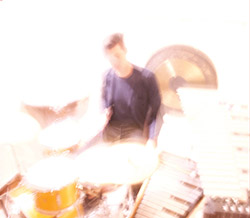
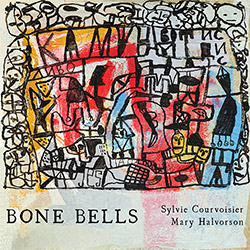
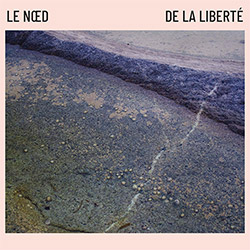
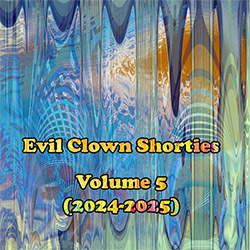

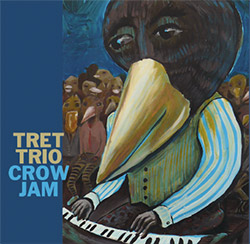




![Yiyuan, Liang / Li Daiguo: Sonic Talismans [VINYL]](https://www.teuthida.com/productImages/misc4/35957.jpg)
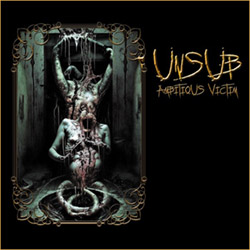
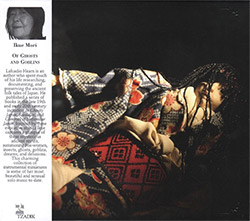



![111 (Michelle / Villamil): Live at Opus 40 [CASSETTE]](https://www.teuthida.com/productImages/misc4/35986.jpg)
![del Pino, Francisco / Charlotte Mundy: The Sea [CASSETTE]](https://www.teuthida.com/productImages/misc4/35987.jpg)
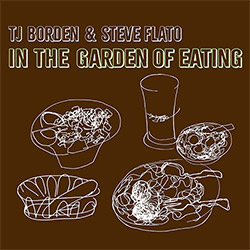

![Niblock, Phill / Anna Clementi / Thomas Stern: Zound Delta 2 [VINYL]](https://www.teuthida.com/productImages/misc4/34623.jpg)
![Myers, David Lee : Tin Drop Tear [BOOK w/ DOWNLOAD]](https://www.teuthida.com/productImages/misc4/36030.jpg)

![Ackerley / Prymek / Turner: All Hope With Sleeping Minds [CASSETTE]](https://www.teuthida.com/productImages/misc4/35950.jpg)







![Laubrock, Ingrid: Purposing The Air [2 CDs]](https://www.teuthida.com/productImages/misc4/35639.jpg)

![Yoko, Ono / The Great Learning Orchestra: Selected Recordings From Grapefruit [2 CDs]](https://www.teuthida.com/productImages/misc4/35841.jpg)









![Zorn, John / JACK Quartet: The Complete String Quartets [2 CDs]](https://www.teuthida.com/productImages/misc4/35609.jpg)

![Lonsdale, Eden: Dawnings [2 CDs]](https://www.teuthida.com/productImages/misc4/35480.jpg)







![Sanna, Claudio: Compositori Sardi Contemporanei II [2 CDs]](https://www.teuthida.com/productImages/misc4/35317.jpg)




![Electric Bird Noise / Derek Roddy: 8-10-22 [CD EP]](https://www.teuthida.com/productImages/misc4/35970.jpg)








![Elephant9 : Mythical River [VINYL]](https://www.teuthida.com/productImages/misc4/34624.jpg)



![Elephant9 with Terje Rypdal: Catching Fire [VINYL 2 LPs]](https://www.teuthida.com/productImages/misc4/35355.jpg)
![Deerlady (Obomsawin, Mali / Magdalena Abrego): Greatest Hits [VINYL]](https://www.teuthida.com/productImages/misc4/34876.jpg)







![Surplus 1980: Illusion of Consistency [CD]](https://www.teuthida.com/productImages/misc4/35069.jpg)
![Staiano, Moe: Away Towards the Light [VINYL + DOWNLOAD]](https://www.teuthida.com/productImages/misc4/35037.jpg)

![Coley, Byron: Dating Tips for Touring Bands [VINYL]](https://www.teuthida.com/productImages/misc4/17906.jpg)

![Lost Kisses: My Life is Sad & Funny [DVD]](https://www.teuthida.com/productImages/misc4/lostKissesDVD.jpg)